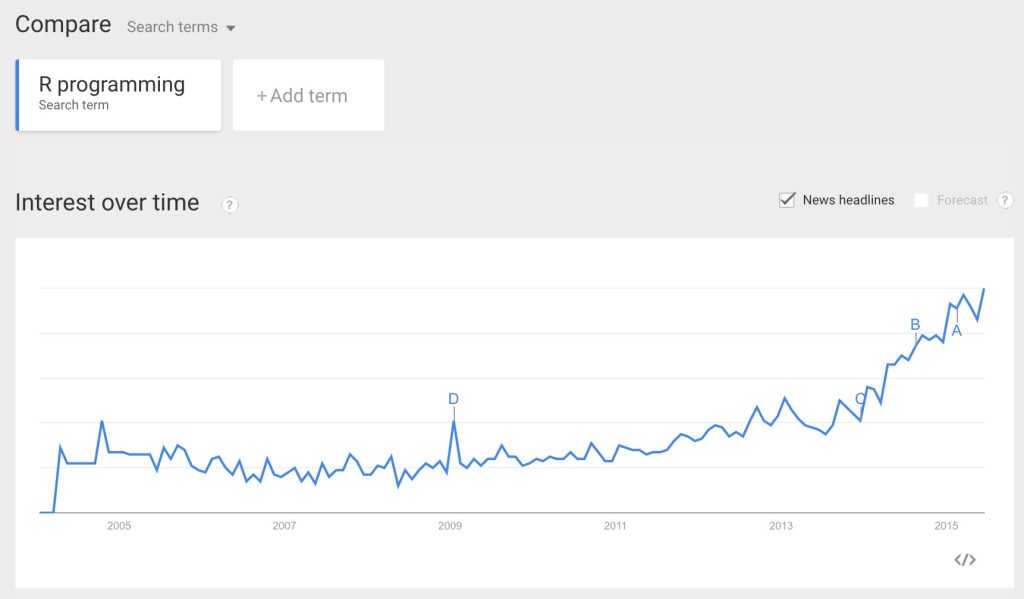
Volume of searches for “R programming” in the past years (Source: Google Trends)
As I described before (in this post), there are six big reasons for start using R and its community is the first one.
Why is this the first reason?
If you are planning to invest your time on learning something new, you should be more comfortable on knowing that other people have already tried, approved and keep supporting that. Moreover, during this process you may be ready to face problems and doubts, which require some external help.
How should you start learning R?
If you are starting now and need some motivation, you can follow the R Programming course in Coursera. It takes only 4 weeks and you will need around 5 hours per week to complete it, depending on your programming skills, previous experience and self organization. This course is part of the Data Science Specialization, which is composed by 9 courses of 4 weeks each, plus a “final project” that takes 8 weeks.
The instructor of this course (@rdpeng) wrote a book about R programming and you can acquire it on Leanpub. You may have it for free, but it is worth to pay the suggested price.
Where should you look for support?
As I mentioned before, it is normal to face problems that are very particular to R. If you decide to follow the classes on Coursera, you will have access to its forum, where you may ask for help to your colleagues.
It is interesting to learn and share your experience with other people that are starting with you, but sometimes you may struggle to find answers to common problems and then StackOverflow will become your best friend. There are around 100.000 questions about R and your first doubts are probably already answered there.
After solving the basic problems, you may want to go further and investigate new ideas and possibilities. The cookbook for R has a lot of examples and good explanations about the components of R, such as data structures and functions. It is very well organized and easy to follow. Another option to find examples, tutorials and tips is R-bloggers. It isn’t as well organized as the cookbook for R, but it contains several applications for real world problems that you may have when creating larger projects.
Where to get some nice (and random) tips?
The twitter account @RLangTip publishes one R tip a day. It may be useful, as you can see below:
How can you extend the functionalities of R?
R is an open source project and gives people the option to develop packages and make them available. CRAN is the main repository of packages, but it is also possible to find several packages in Bioconductor, which focuses more on solutions for bioinformatics.
In conclusion, the number of R users has been increasing in the last years and it is easy to find resources over the web.

